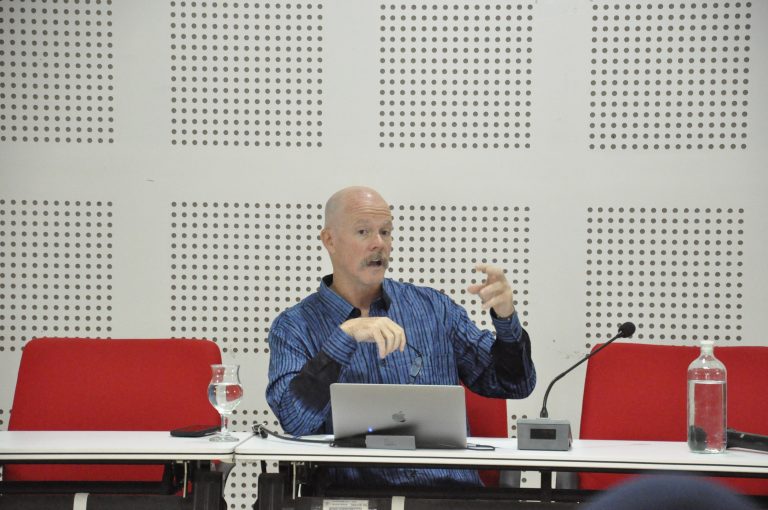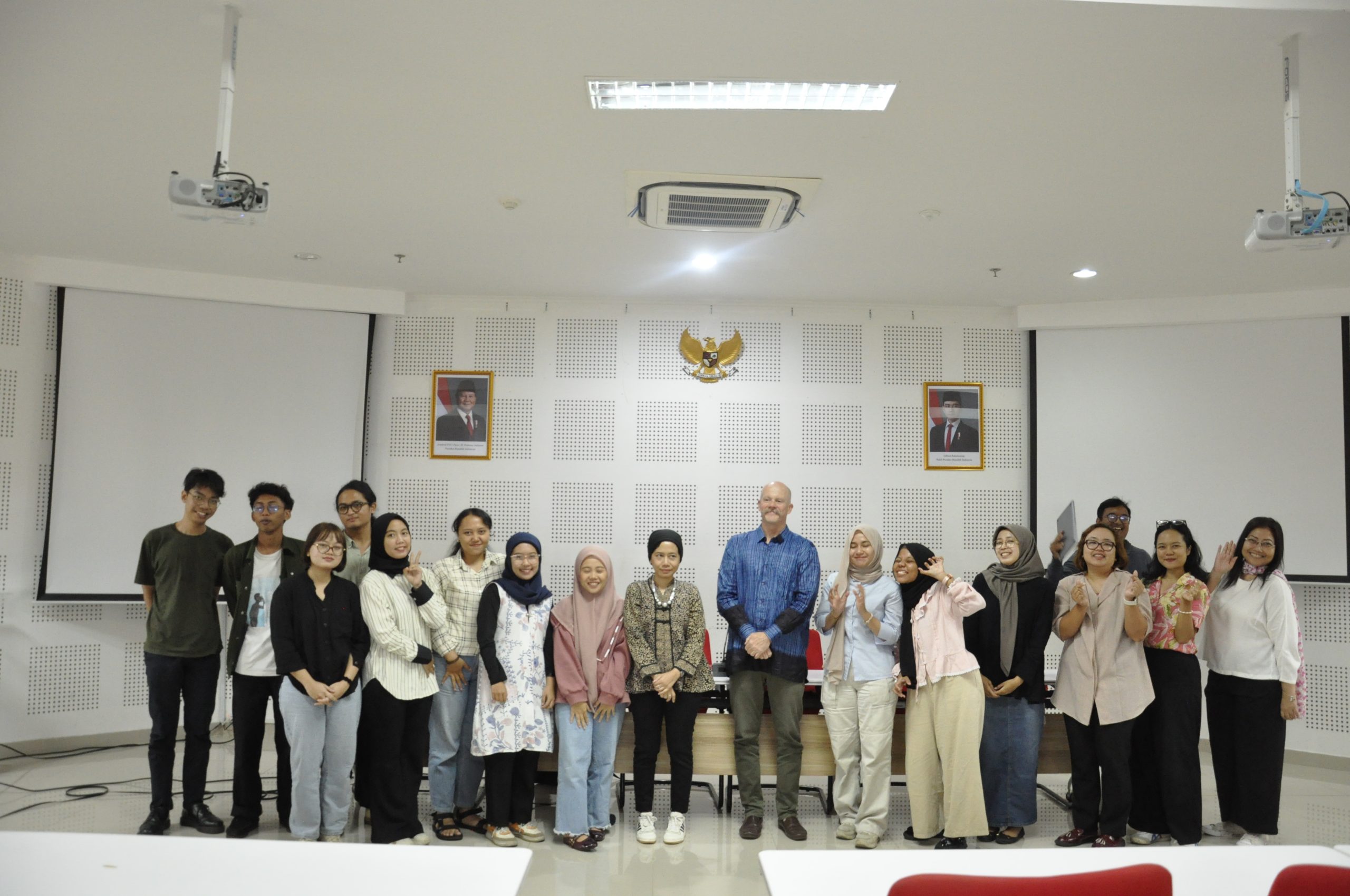
Yogyakarta, 06/13/2025 — The Department of Cultural Anthropology presented Mike McGovern from the University of Michigan as a resource person in a seminar entitled “Resentment Three Ways: Is Resentment Politically Destructive, or Can it be Constructive?” Cultural Anthropology students attended this event to explore the complex nature of resentment and its impact on society.
In his presentation, Mike McGovern highlighted that most European thinking on resentment follows the views of Friedrich Nietzsche, who belittled this sentiment as part of a “slave rebellion in morality,” which he said characterized Judeo-Christian culture. According to Nietzsche, resentment is considered an emotion that is past-oriented, childish, and ultimately detrimental to the individual who experiences it.
This seminar aims to explore the multifaceted nature of resentment, especially in the context of education and conflict resolution. Mike McGovern emphasized that understanding resentment is essential to fostering dialogue and promoting peace in societies that end conflict. He argues that hurt can lead to destructive political outcomes or serve as a catalyst for constructive change, depending on how it is managed.
Mike McGovern brings together three case studies from Myanmar, Guinea, and the United States to illustrate how hurt operates in different social and economic contexts, each producing different trajectories and outcomes. In Myanmar, for example, hurt has fueled protracted ethnic conflict, divisions, and hampered progress toward reconciliation. Meanwhile, the situation in Guinea shows how collective hurt over colonial legacies has fueled movements toward social justice and political reform.
Throughout the seminar, McGovern encouraged participants to reflect on their own experiences with hurt and consider how these feelings can be transformed into positive action. He emphasized the importance of education in this process, as it provides individuals with the tools to engage in constructive dialogue and resolve conflict.
As the seminar concluded, participants left with a new understanding of the dual nature of hurt. While it can be a source of discord and conflict, it also has the potential to inspire change and foster unity when approached thoughtfully. The event emphasized the importance of addressing emotions such as hurt in efforts to achieve sustainable development goals, especially in the areas of education and conflict resolution.

[Humas FIB UGM, Candra Solihin]

